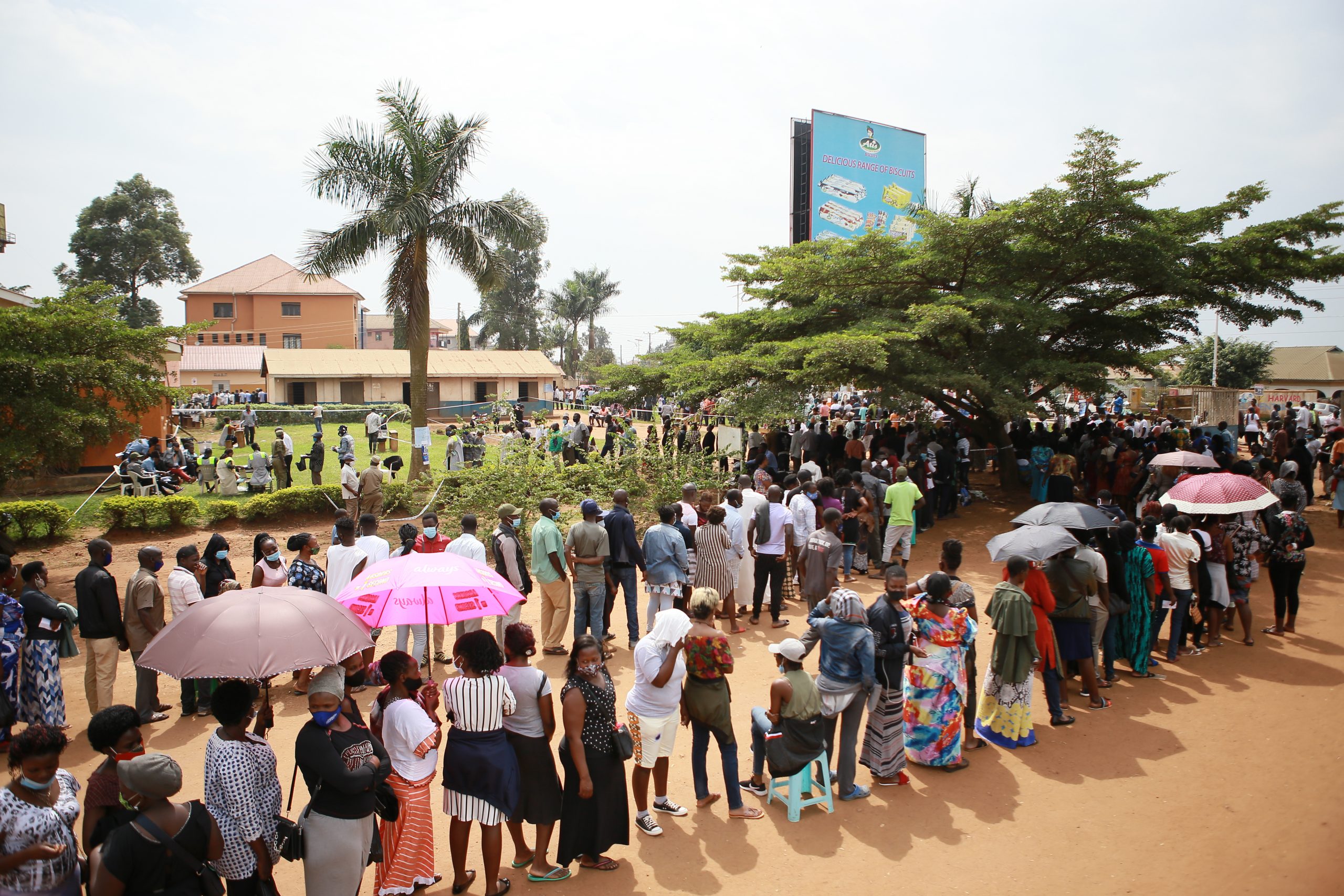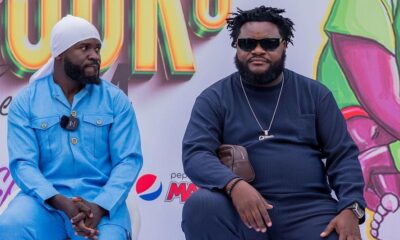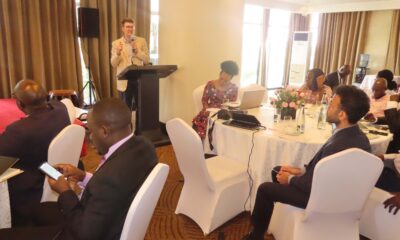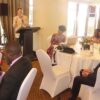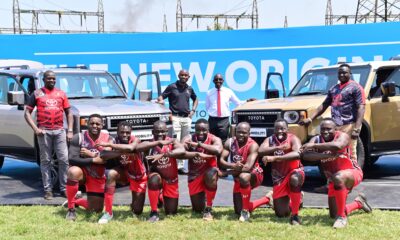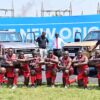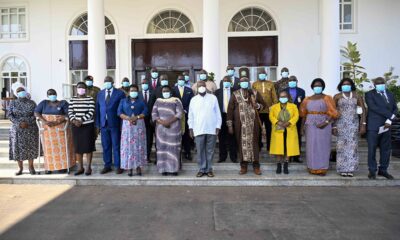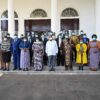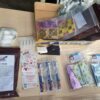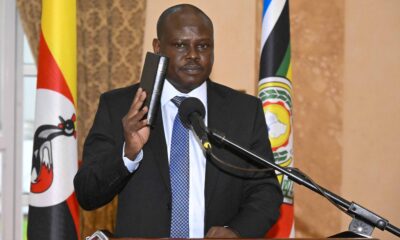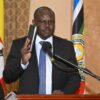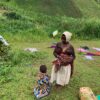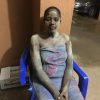News
2021 Poll; Democracy in Undemocratic times
Democracy in Undemocratic times; the case of Uganda’s 2021 Presidential Election
With tougher policing, tighter ministry of Health sanctioned guidelines to slow the march of Covid-19 and violent confrontations between the military and opposition presidential candidates, the 2020/2021 general election campaign got off to an ominous start.
In the end the general election offered a perfect guidepost for how heavy use of the military to police an election can seriously demolish the notion of a free and fair election in a democratic dispensation.
On January 14th 2021, Ugandans elected a president and, members of parliament. A week later, they elected local government leaders. Though the election was seen largely as democratic, the process leading up to Election Day was rather undemocratic.
Democracy, by definition, is a system of government by the whole population or all the eligible members of a state, typically through elected representatives. An election is a process in which people vote to choose a person or group of people to hold public office. While this may have happened in Uganda on January 14th, the processes that led to the election were not democratic.
When the Electoral Commission confirmed January 14th 2021 as the Election Day, the ultimate polling decision, announced in the middle of a Coronavirus pandemic sounded bizarre to many people especially in the opposition. The country was still struggling to contain the Covid-19 pandemic. Large gatherings were banned; churches, schools and airports were locked down including other means of transport.
It sounded unrealistic that the country was going into an election in the middle of an infectious Coronavirus outbreak.
Many wondered whether the election would be democratic when the times were undemocratic.
Nomination;
Monday 2nd and Tuesday 3rd November 2020, were the Electoral Commission appointed nomination days for presidential candidates –which added another layer of drama and arrests. On day one, the incumbent president and eventual winner was nominated. On the same day, two other candidates were turned away for showing up without paying the required UGX 20,000,000 nomination fees. John Katumba and Nancy Kalembe Linda (the only woman in the race) were dramatically told to leave the nomination grounds and return the next day after paying up. The duo returned the next day with proof of payment and were dully nominated.
The high drama on day two of the nomination process opened the undemocratic road to the 2021 General Election. Two opposition candidates; Patrick Oboi Amuriat of the opposition FDC and Kyagulanyi Ssentamu Robert of the National Unity Platform (NUP) were arrested. Amuriat was arrested outside the FDC party offices in Najjanankumbi. Police whisked him to Kyambogo University grounds, where the nomination exercise was taking place. However, the FDC presidential candidate lost his pair of shoes in the fracas and was nominated barefoot, prompting him to run the entire 60-day campaign without shoes in protest at police harassment. Kyagulanyi was arrested moments after his nomination and driven to his home in Magere in the central district of Wakiso. His house was placed under a security siege and some of his agents were roughed up by police. To many, this was a clear sign that what lay ahead was even worse.
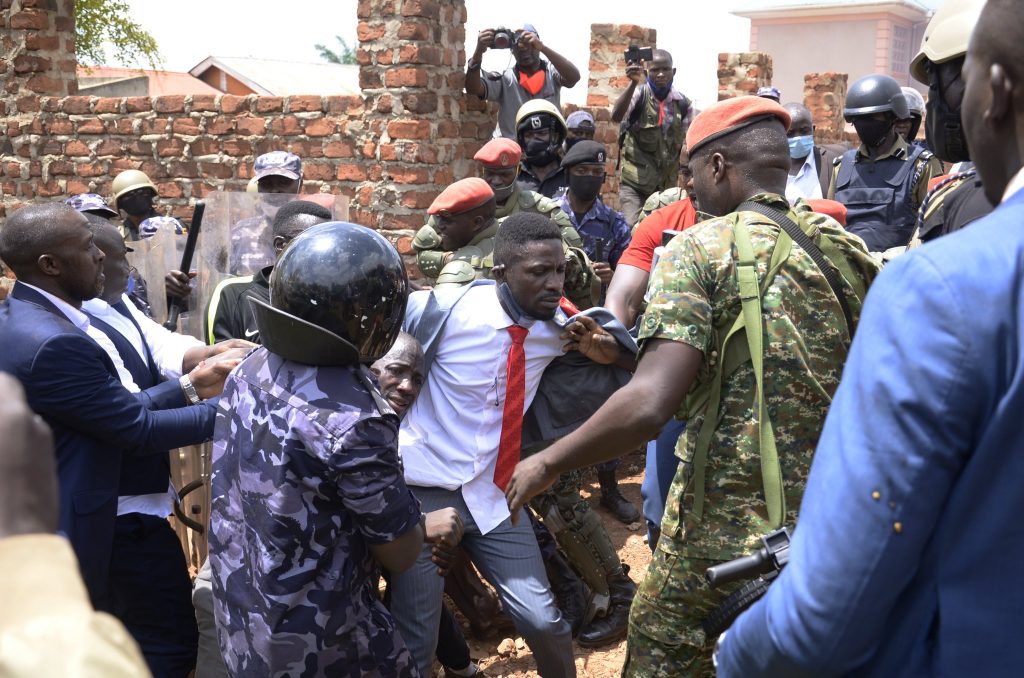
Interviewed for this story, FDC party deputy spokesperson John Kikonyogo said they knew the election would not be free and fair, but they participated, to expose the EC and NRM government.
“It was obvious the elections were going to be brutal and undemocratic but FDC went in to expose the electoral commission et al,” Kikonyogo said.
Rukirabashaija Kakwenza, a human rights activist, said the arrests on nomination day reminded him of the 2001 and 2006 general elections.
“On the day of presidential nominations, I saw the police pulling Eng. Patrick Oboi Amuriat of FDC out of his vehicle, bundle him into their vehicle and drive him at a breakneck speed and dump him at Kyambogo nominations ground, furious and barefoot, and I undoubtedly knew that the whole thing called an election was already a sham and going to be marred by indescribable unfairness. Later in the evening, I also watched as Kyagulanyi of NUP was forced out of his official vehicle after breaking into it and crippling all his team, and I reminisced about the elections of 2001 and 2006. That is when I lost hope in this country ever going to have a peaceful transfer of power through elections,” Kakwenza said.
Campaigns;
In a democratic election, all candidates are expected to access campaign venues without hinderance. However, since this was labeled a ‘scientific election’, official campaigns were virtual. Candidates were to use radios, TV stations and social media to campaign. While this may have been easy for many incumbents, it was harder for political rookies. Many were bounced from one radio station to another – snubbed for holding different ideologies or lack of money to buy airtime.
It is no secret that many radio stations in Uganda, especially upcountry are owned by NRM leaning politicians. So it became difficult for many opposition candidates to get airtime on radio stations owned by NRM sympathizers. Also, most stations were used as campaign tools for NRM leaning candidates.
At one particular radio station I visited, all presenters were instructed to campaign for President Museveni while on air. They played songs praising the president and under no circumstances were they supposed to mention his opponents. Also, NRM flag bearers were given enough air play by station owners. That had a detrimental effect on their opposition opponents. Presenters said they played along because they feared losing their jobs.
“You see, this is not what we signed up for. But if one still needs to have a job post-election, we must do as the boss says. It is definitely unethical to choose sides as journalists, but these are very hard times” one presenter said.
Some presidential candidates were denied airtime yet they paid up to appear on radio. A local radio station in the northern district of Agago was switched off air while FDC Presidential Candidate Patrick Oboi Amuriat, POA, was speaking. According to insiders the order came from the district police commander.
And NUP Presidential Candidate Robert Kyagulanyi Ssentamu and his team were ejected from Spice FM studios in the western district of Hoima moments after introducing themselves. According to the party leadership, they had paid UGX 1,000,000 for the talk show.
The Alliance for National Transformation, ANT Party Presidential Candidate Maj. Gen Mugisha Muntu was also refused to speak on radio in the western district of Kamwenge yet the radio station had agreed to host him. The station managers allegedly received threats from authorities. This is not democracy.
Independent Presidential Candidate Nancy Kalembe said she was disappointed with what she saw on-the-ground. She wondered whether the democracy taught in school is the same practiced on the outside. “It was so different from what I always knew. The democracy you are taught in class is different from what is practiced in the field. You are denied access to some places yet they are listed on your harmonized campaign programme,” Kalembe said.
Some candidates were arrested severally for allegedly ignoring the Covid-19 standard operating procedures (SOPs) set by the Ministry of Health. The Electoral Commission’s directives initially stated that candidates could only meet with 60 supporters at campaign venues. The commission later increased the number to 200 people per campaign meeting. While the NRM candidate and incumbent President Yoweri Museveni tried to follow the directives, his aides did not. Wherever he visited, a section of musicians in the presidential campaign camp mobilized crowds to wait for him. Though the president refused to even wave to the crowds, many in the opposition criticized him for not putting a stop to the mobilization of NRM crowds.
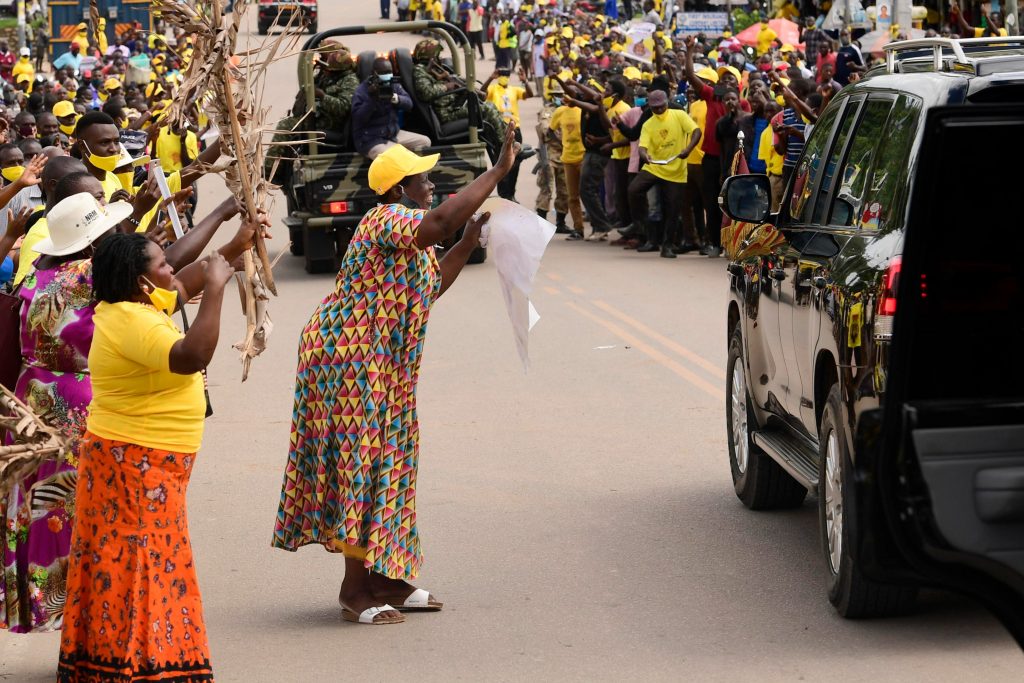
Other presidential candidates; Kyagulanyi Ssentamu Robert of NUP and Patrick Oboi Amuriat were arrested on several occasions and charged with ignoring the Covid-19 SOPs. One such arrest was on November 18th 2020. Kyagulanyi was arrested in the eastern district of Luuka triggering violent protests across the country that led to the death of more than 50 Ugandans and arrests of more than 1000.
Amuriat was also arrested for ignoring Covid-19 SOPs and for reckless driving. He was accused of sitting on top of a moving car. He was charged in Kakumiro and Mpigi for the same. Many believed this wasn’t a democratic campaign since candidates were not allowed to do what their campaign teams planned within the law.
However, Kikonyogo said they did not think of the arrests as a witch-hunt. “Arrests were not witch-hunt per se but torture to any substantial opponent irrespective of who, treatment would be similar” he said.
Election Day and the Internet Shutdown;
After navigating their way around several challenges during the campaigns, then came polling day and the official internet shutdown. On Friday prior to elections, many Ugandans complained about the inaccessibility of Facebook. By Wednesday, January 13 2021, just hours to voting, the internet was shutdown entirely. There was no access to emails. It was so surreal that this would happen at a time when the whole world had its eyes on Uganda – her democracy was being tested. Unlike in the past when people were able to access social media using the secure virtual private network (VPN), this time round it was impossible. For one week, Ugandans returned to analog and communication was by phone call and SMS. Many feared to make calls, thinking they were tapped by the State.
For journalists especially on TV, it was a very hard time to broadcast news. Live reporting at polling stations was outlawed. Reports were recorded and memory cards given to boda boda riders to take to the station and return with an empty card. During the wait for an empty memory card, a lot went uncaptured. That was a big disservice.
“We properly went back to analog. We had to act like we are reporting live at the polling centers. Raw reports went straight on air because there was no time to edit. Then the boda boda would rush the card back to office, by the time he returns you’ve like 5/6 new polling centers,” a local TV reporter told me.
Another reporter said her station had lots of difficulty relaying what was happening at Kyambogo in real time. “Every after two hours, our car had to drive to Kyambogo to pick the memory card to broadcast. It was tiresome and complicated,” she said.
Is this Democracy? Government got lots of criticism from donors and other partners for holding an election in the dark and not giving the whole world an opportunity to see what was happening in real time.
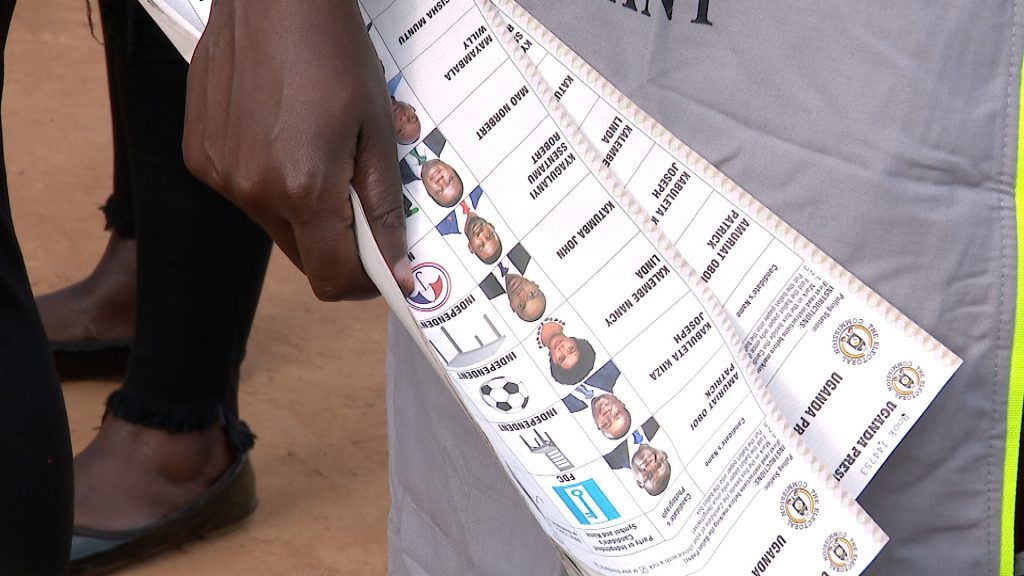
While all this was happening, NUP Presidential candidate Robert Kyagulanyi and his wife were under house arrest. For at least 10 days, no one was allowed in or out of their home. He spoke to journalists on phone to explain what he was going through. This was not democracy, many said.
FDC deputy Spokesperson John Kikonyogo said this election was far from being democratic.
“The process was not fair. The number of registered voters is raised by more than 400,000, no explanation. Oboi was teargassed on a daily basis. No chance of meeting voters freely. EC was not in charge. Police was in charge of ‘giving candidates’ permission where to go and not EC” Kikonyogo argued.
For Crispin Kaheru, an independent elections observer, the pre-election period had some challenges, but the Election Day was okay.
“It had some challenges that affected the pre-election environment. The election day, results tallying and announcement were much better handled though” Kaheru said.
Interviewed Morrison Rwakakamba, a political analyst, said whereas the election was imperfect, it was free and fair, since in areas where President Yoweri Museveni (the NRM Party candidate) won, party parliamentary flag bearers and local council leaders also won.
“It was imperfect but free and fair, especially so because where candidate Museveni won NRM MPs and local council leaders won. This is the same with candidate Kyagulanyi and NUP, where he won e.g in central region, his MPs and local council candidates mostly won,” Rwakakamba said.
He was however, quick to add that the internet shutdown hurt the NRM government because it diminished trust in election results. “Government should have targeted and deplatformed ringleaders of suspected electoral violence.”
Following the internet shutdown, the European Union issued a statement condemning the move. “Access to social media was disturbed, and a full internet blackout disrupted the freedom of expression, freedom of information, and regular economic and social activities. In particular, this severely hampered the work of journalists, observers, party agents and others expected to report on the polling results and scrutinize them,” the statement read.
While access to the internet has been restored, to date, Facebook is still blocked in Uganda and it remains unclear if, or when it will be back on.


